Landscape Gardening in Bethnal Green
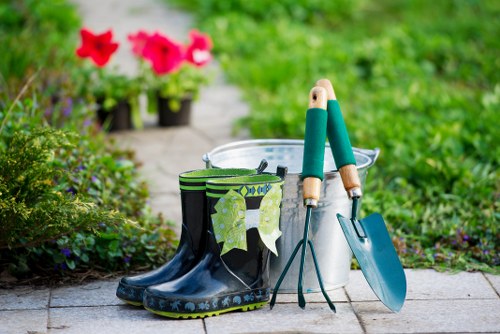
Landscape gardening in Bethnal Green offers residents and businesses alike the opportunity to transform their outdoor spaces into lush, inviting environments. Nestled in the heart of East London, Bethnal Green combines urban living with green retreats, making it an ideal location for cultivating beautiful gardens that provide both aesthetic pleasure and environmental benefits.
Whether you have a spacious backyard or a compact balcony, landscape gardening can be tailored to fit any space. The key is to understand the unique characteristics of your area, including soil quality, sunlight exposure, and local climate conditions. By leveraging these factors, you can create a garden that not only looks stunning but also thrives throughout the year.
One of the main advantages of landscape gardening in Bethnal Green is the community’s emphasis on sustainability. Many gardeners here are keen on using eco-friendly practices, such as composting, rainwater harvesting, and planting native species. These methods help reduce the environmental footprint of your garden while promoting biodiversity and supporting local wildlife.
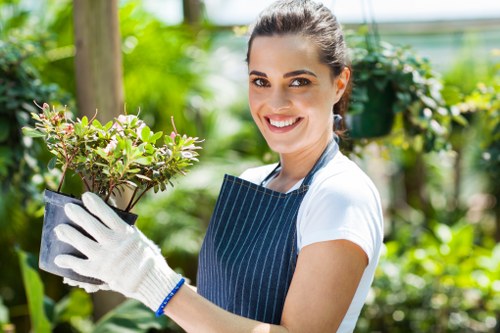
Planning Your Landscape Garden
Effective landscape gardening begins with thoughtful planning. Start by assessing your space and determining what you want to achieve. Are you looking to create a serene retreat, a vibrant space for entertaining, or perhaps a combination of both? Identifying your goals will guide your design decisions and plant selections.
Site Analysis: Conduct a thorough analysis of your garden space. Take note of the sunlight patterns, soil type, drainage, and existing vegetation. This information is crucial for selecting plants that will flourish in your garden’s specific conditions.
Design Elements: Incorporate various design elements such as paths, seating areas, water features, and lighting. These additions not only enhance the visual appeal of your garden but also improve its functionality. Consider how each element can contribute to the overall harmony and flow of the space.
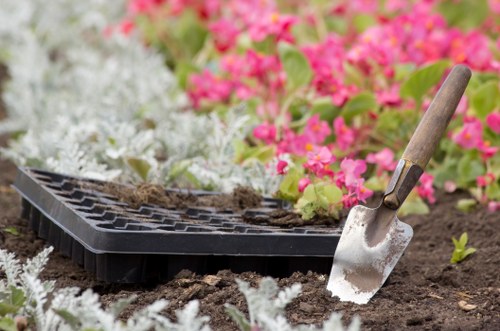
Choosing the Right Plants
Plant selection is a vital component of landscape gardening. In Bethnal Green, gardeners have access to a diverse range of plant species that thrive in the local climate. Opting for a mix of perennials, annuals, shrubs, and trees can create a dynamic and resilient garden.
Native Plants: Incorporating native plants is highly recommended as they are well-adapted to the local environment and require less maintenance. Native species also support local biodiversity by providing habitats and food sources for pollinators and other wildlife.
Seasonal Variety: To ensure your garden remains vibrant throughout the year, choose plants that offer seasonal variety. Combine flowering plants that bloom in different seasons with evergreen species that provide year-round structure and greenery.
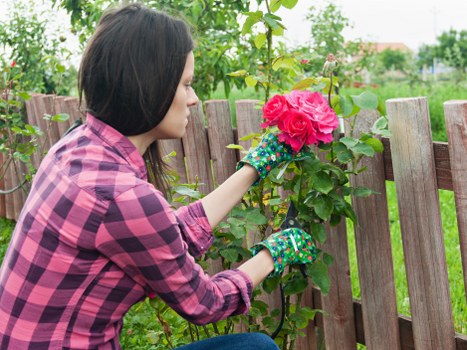
Eco-Friendly Gardening Practices
Sustainability is at the forefront of landscape gardening in Bethnal Green. Adopting eco-friendly practices not only benefits the environment but also enhances the health and longevity of your garden.
- Composting: Recycling kitchen scraps and garden waste through composting enriches the soil with essential nutrients, reducing the need for chemical fertilizers.
- Rainwater Harvesting: Collecting rainwater for irrigation conserves water and ensures your plants receive a consistent supply, especially during dry periods.
- Organic Pest Control: Utilizing natural pest control methods, such as introducing beneficial insects or using organic sprays, minimizes the impact on non-target species and maintains ecological balance.
By implementing these practices, you contribute to a healthier ecosystem while creating a garden that is both beautiful and sustainable.
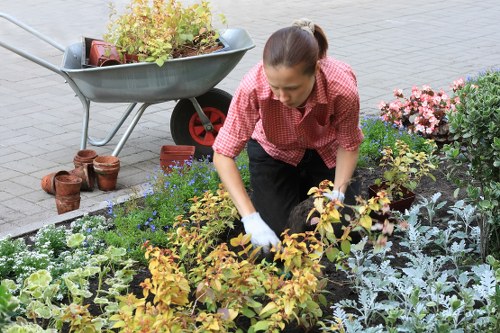
Incorporating Hardscaping Elements
Hardscaping refers to the non-living components of your garden, such as walkways, patios, walls, and water features. These elements provide structure and functionality, complementing the living aspects of your landscape garden.
Pathways and Patios: Well-designed pathways guide visitors through your garden, creating a sense of exploration and discovery. Patios offer spaces for relaxation and entertainment, serving as extensions of your indoor living areas.
Water Features: Adding a pond, fountain, or small waterfall can introduce the soothing sounds of water, enhancing the tranquility of your garden. Water features also attract wildlife, adding another layer of interest to your outdoor space.
Lighting: Outdoor lighting extends the usability of your garden into the evening hours, highlighting key features and providing safety along pathways.
Seating Areas: Comfortable seating areas encourage you to spend more time in your garden, enjoying the beauty and serenity it offers. Options include benches, hammocks, or outdoor furniture sets.
Retaining Walls: Retaining walls not only prevent soil erosion but also add visual interest and can be used to create different levels within your garden.
Garden Structures: Incorporate structures such as pergolas, trellises, and arches to add architectural interest and provide support for climbing plants.
Fencing and Borders: Fencing provides privacy and defines the boundaries of your garden. Borders can separate different garden areas, creating a sense of organization and balance.
Integrating these hardscaping elements with your plant selections results in a cohesive and well-rounded landscape garden that is both functional and aesthetically pleasing.
Maintaining Your Landscape Garden
Proper maintenance is essential to ensure the longevity and beauty of your landscape garden. Regular tasks such as pruning, weeding, and watering keep your plants healthy and your garden looking its best.
Pruning: Trim overgrown branches and remove dead or diseased foliage to promote healthy growth and prevent the spread of pests and diseases.
Weeding: Keep your garden free from invasive weeds that can compete with your plants for resources. Hand-pulling or using organic mulches can help manage weed growth effectively.
Watering: Establish a consistent watering routine tailored to the needs of your plants. Consider using drip irrigation systems or soaker hoses to deliver water directly to the roots, minimizing evaporation and water waste.
Soil Care: Regularly test and amend your soil to maintain optimal pH levels and nutrient content. Adding compost or other organic matter improves soil structure and fertility, supporting robust plant growth.
Pest Management: Monitor your garden for signs of pests and take prompt action to address any issues. Employing natural pest control methods helps maintain the ecological balance of your garden.
Seasonal Care: Adapt your gardening practices to the changing seasons. Protect delicate plants from frost in winter, and provide shade and water during the hot summer months to ensure their continued health and vitality.
Mulching: Apply mulch to insulate the soil, retain moisture, and suppress weed growth. Organic mulches, such as bark or straw, also decompose over time, enriching the soil with nutrients.
Fertilization: Feed your plants with appropriate fertilizers during the growing season to support their growth and blooming. Organic fertilizers are preferred for their environmental benefits and long-term soil health.
Enhancing Wildlife Habitat
Creating a garden that supports local wildlife adds another layer of interest and contributes to the ecosystem. Incorporate features that attract birds, butterflies, and beneficial insects.
- Bird Feeders and Baths: Installing bird feeders and baths provides essential resources for feathered friends, encouraging them to visit your garden.
- Pollinator Gardens: Planting nectar-rich flowers attracts pollinators such as bees and butterflies, which are vital for plant reproduction and overall garden health.
- Insect Hotels: Provide shelter for beneficial insects by creating insect hotels using natural materials like bamboo, wood, and straw.
By fostering a diverse and thriving wildlife habitat, you enhance the beauty and sustainability of your landscape garden.
Incorporating Sustainable Materials
Using sustainable materials in your garden design reduces environmental impact and promotes responsible resource use. Opt for eco-friendly options such as reclaimed wood, recycled metal, and natural stone for hardscaping elements.
Recycled Materials: Incorporating recycled materials into your garden structures not only adds unique character but also minimizes waste. Examples include repurposed pallets for garden furniture or recycled glass for decorative features.
Natural Stone: Natural stone is a durable and aesthetically pleasing material for pathways, patios, and decorative elements. It blends seamlessly with the natural surroundings and requires minimal maintenance.
Maximizing Space in Urban Gardens
In an urban setting like Bethnal Green, space can be limited. However, with creative design strategies, even the smallest gardens can be transformed into functional and beautiful spaces.
Vertical Gardening: Utilize vertical space by installing trellises, living walls, or hanging planters. Vertical gardening not only saves space but also adds visual interest and can improve air quality.
Container Gardening: Growing plants in containers is an excellent solution for small spaces. Choose stylish pots and planters that complement your garden’s design while providing flexibility in plant placement.
Creating Multi-Functional Spaces
Designing multi-functional garden spaces maximizes utility and enhances the overall experience. Incorporate areas designated for different activities, such as dining, lounging, or gardening.
Outdoor Kitchens: An outdoor kitchen allows you to cook and entertain in your garden, making it a central hub for social gatherings and family activities.
Relaxation Zones: Create tranquil areas with comfortable seating, shade structures, and calming water features where you can unwind and enjoy nature.
Utilizing Technology in Landscape Gardening
Embracing technology can enhance the efficiency and aesthetics of your landscape garden. Smart irrigation systems, automated lighting, and garden monitoring tools provide convenience and optimize resource use.
- Smart Irrigation: Automated irrigation systems adjust watering schedules based on weather conditions, ensuring plants receive the right amount of water without manual intervention.
- Automated Lighting: Smart lighting systems can be programmed to illuminate your garden at specific times, enhancing safety and creating ambiance during the evening hours.
- Garden Sensors: Monitoring tools track soil moisture, temperature, and other environmental factors, providing valuable data to help you maintain a healthy garden.
Incorporating these technologies streamlines garden maintenance and allows you to focus more on enjoying your outdoor space.
Choosing a Landscape Gardener in Bethnal Green
For those who prefer professional assistance, hiring a landscape gardener can ensure your garden is expertly designed and maintained. When selecting a landscape gardener in Bethnal Green, consider their experience, portfolio, and alignment with your vision.
Experience and Expertise: Look for gardeners with a proven track record in creating diverse garden styles. Their expertise will be invaluable in navigating challenges and bringing your vision to life.
Portfolio and References: Review their portfolio to assess the quality and variety of their work. Client testimonials and references can also provide insight into their reliability and professionalism.
Personalizing Your Garden
Your landscape garden should be a reflection of your personal style and preferences. Incorporate elements that resonate with you, whether it's a favorite color palette, unique sculptures, or bespoke seating arrangements.
Color Schemes: Choose a color scheme that complements your home and creates the desired mood. Bold colors can make a statement, while muted tones offer a more subdued and relaxing atmosphere.
Decorative Accents: Add personality to your garden with decorative accents such as art pieces, fountains, or themed ornaments. These touches can make your garden uniquely yours and enhance its visual appeal.
Seasonal Planting and Care
Seasonal planting ensures that your garden remains vibrant and attractive throughout the year. Each season offers unique opportunities for planting and garden enhancements.
- Spring: Plant early bloomers like tulips and daffodils to add color as the weather warms up.
- Summer: Focus on heat-tolerant plants and incorporate shade elements to keep your garden cool.
- Autumn: Utilize plants with striking fall foliage and prepare your garden for the cooler months.
- Winter: Choose evergreen species and incorporate winter-hardy plants to maintain structure and interest.
Regularly adjusting your planting strategy based on the season ensures a continuously engaging and healthy garden.
Enhancing Privacy in Your Garden
Creating a sense of privacy in your landscape garden allows you to enjoy your outdoor space without disturbances. There are several strategies to enhance privacy, even in densely populated areas like Bethnal Green.
Hedging and Screening: Plant tall shrubs or trees along the boundaries of your garden to block unwanted views and create a secluded atmosphere.
Fencing Solutions: Install fences or pergolas covered with climbing plants to add both privacy and aesthetic appeal. Choose materials and designs that complement your garden’s overall style.
Maximizing Light in Your Garden
Maximizing natural light can significantly enhance the beauty of your landscape garden. Strategic placement of plants and garden structures can make the most of available sunlight.
- Light-Reflecting Surfaces: Use light-colored paving materials and reflective surfaces to increase brightness in shaded areas.
- Pruning for Light: Regularly prune trees and shrubs to allow more sunlight to penetrate your garden, promoting healthier plant growth.
- Orientation: Position seating areas and key features in sunnier spots to take advantage of natural light.
By thoughtfully managing light exposure, you can create a vibrant and inviting garden space.
Integrating Art and Sculptures
Incorporating art and sculptures into your landscape garden adds a creative and personal touch. These elements can serve as focal points and enhance the overall aesthetic appeal of your outdoor space.
Garden Art: Choose pieces that resonate with your taste, whether it's modern sculptures, classic statues, or abstract installations. Position them strategically to draw attention and create visual interest.
DIY Projects: Personalize your garden with DIY art projects, such as painted rocks, handmade wind chimes, or custom planter arrangements. These unique touches reflect your creativity and make your garden truly one-of-a-kind.
Creating a Sustainable Ecosystem
A sustainable garden promotes ecological balance and reduces the need for excessive resources. By designing your landscape garden with sustainability in mind, you contribute to a healthier environment.
- Compost Bins: Set up compost bins to recycle organic waste into nutrient-rich compost for your plants.
- Rain Gardens: Install rain gardens to manage stormwater runoff and support diverse plant life.
- Solar Lighting: Utilize solar-powered lights to reduce energy consumption and lower your garden’s carbon footprint.
Embracing sustainable practices not only benefits the planet but also creates a resilient and thriving garden.
Conclusion
Landscape gardening in Bethnal Green is a rewarding endeavor that blends creativity, sustainability, and functionality. By carefully planning your garden, selecting the right plants, and incorporating eco-friendly practices, you can create a beautiful outdoor space that enhances your living environment and contributes positively to the community.
Whether you choose to undertake the project yourself or enlist the help of a professional landscape gardener, the results will be a personalized garden that reflects your style and meets your needs. Embrace the possibilities of landscape gardening in Bethnal Green and transform your outdoor space into a green haven.
Contact us today to start your landscape gardening journey in Bethnal Green and bring your garden dreams to life!